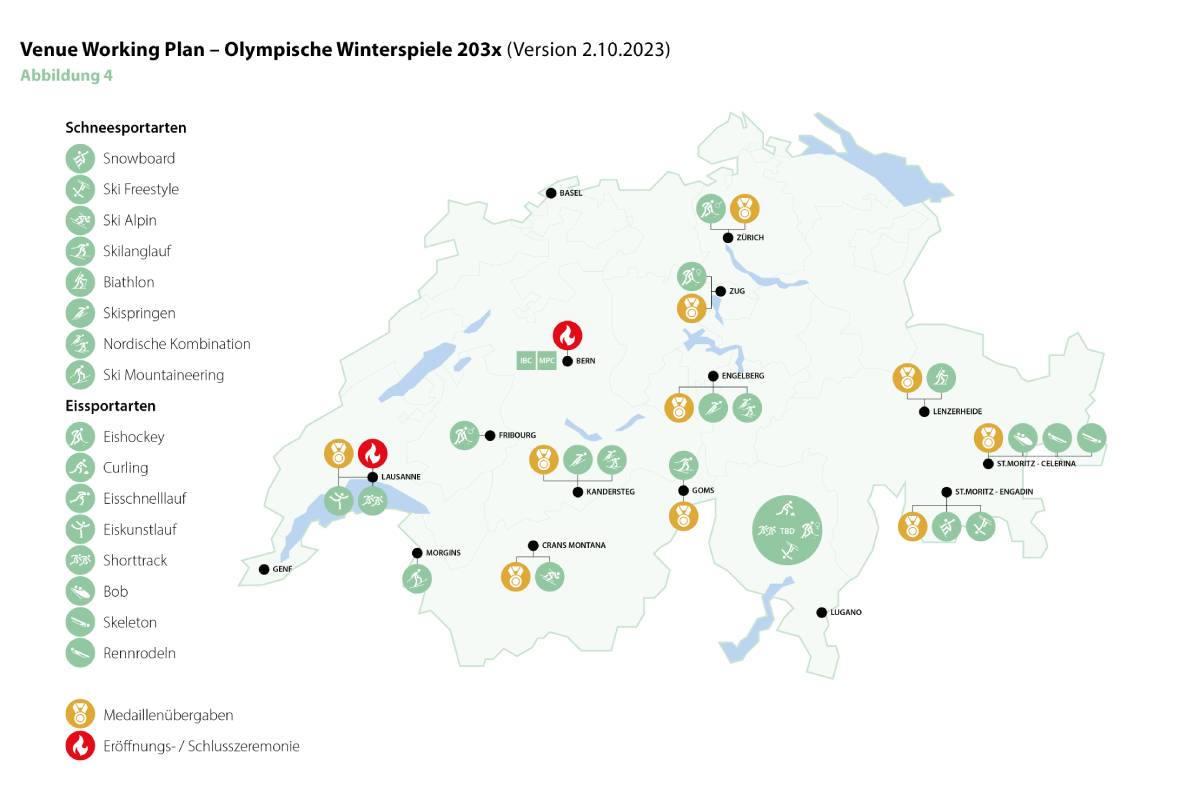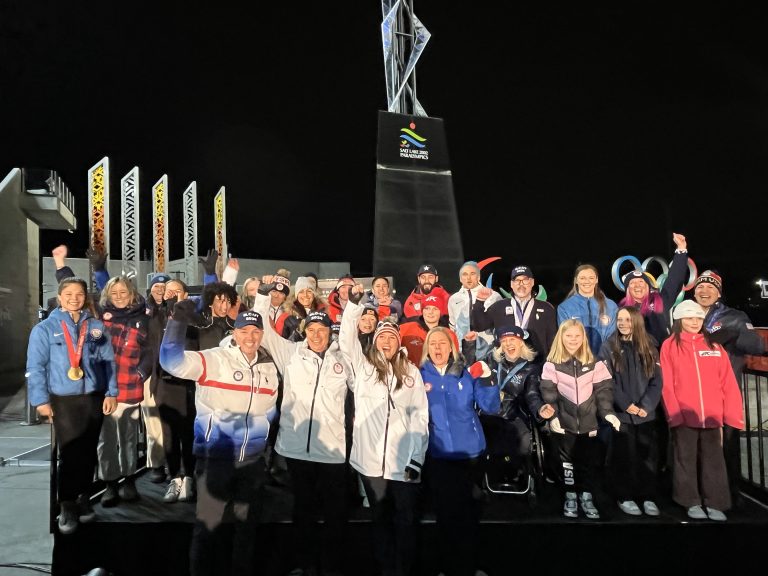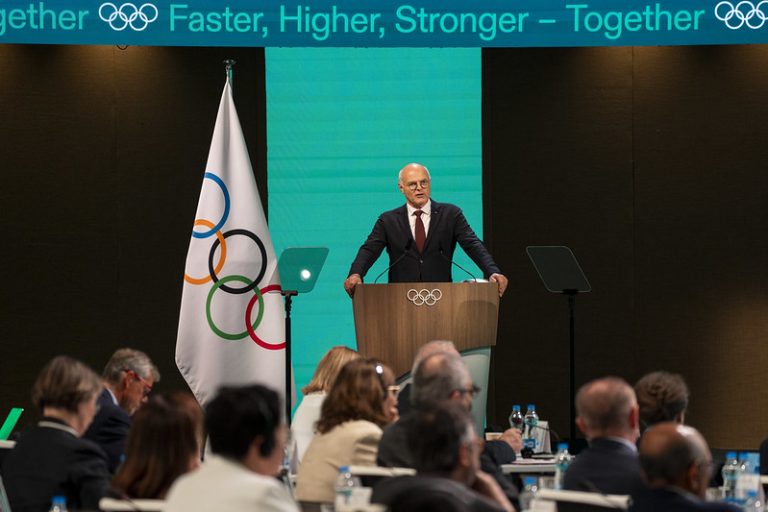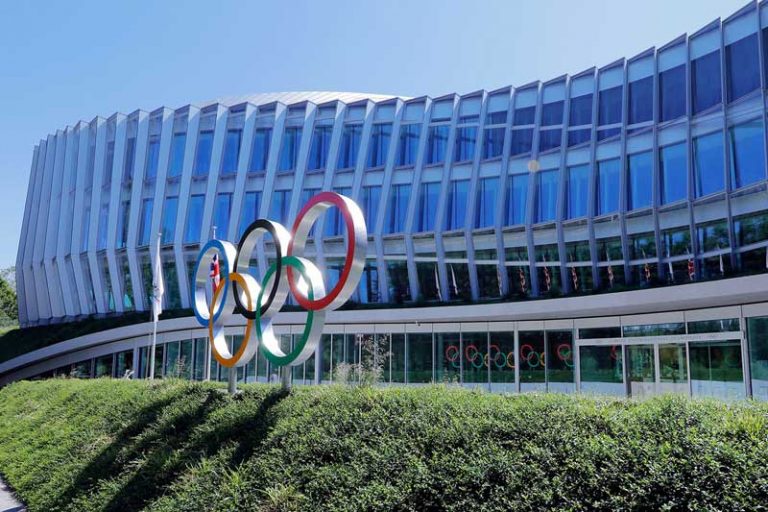Two-thirds of those surveyed across Switzerland support their nation’s new national Olympic and Paralympic Winter Games bid, the highlight to Swiss Olympic’s feasibility study released Wednesday that concludes “the vision is feasible.”

Residents have responded favorably to the new decentralized approach that will leverage existing world class venues in communities across the country without the fear of construction cost overruns or poor legacy plans. The study examined hosting in “203X,” including planned editions for 2030 or 2034 with a focus on the former. On Sunday the International Olympic Committee (IOC) announced that it is considering awarding both 2030 and 2034 Games at the same time next year and it specifically included Switzerland in the 2030 race against Sweden and France. Salt Lake City in the United States was singled out as the sole 2034 applicant.
The survey, conducted in September by pollster gfs.bern, revealed that of the 67 percent in favor 27 percent ‘strongly support’ and 40 percent ‘support’ the bid while a total of only 26 percent oppose the project (split evenly between strongly ‘opposed’ and ‘opposed’).
Earlier this month a poll by Zurich-based newspaper Tages-Anzeiger revealed 55 percent support across Switzerland.
The strong support is significant in a historical context, allowing the project to move forward where others Swiss projects have failed in the past. In 2018 almost 54 percent of residents across the Canton of Valais voted against a funding proposal for a Sion 2026 Winter Games, ending the bid in its tracks. In 2013, almost 53 percent voted against a Davos-St. Moritz bid, stopping the potential project before it could even begin.
No national referendums are planned but the report identified pockets of disapproval from some cantons that could launch their own referendums. But planners have made the concept referendum-proof by suggesting that any venue that cannot be used due to local opposition will be moved to another location. There are many venue redundancies across Switzerland, and the IOC has made clear that it will support staging events across international borders if necessary, this week approving Italy’s request to stage sliding competitions elsewhere after a plan by Milano-Cortina 2026 to build a luge track fell through.
No viable indoor speed skating oval exists in Switzerland, but the adaptation of similar venues in the country will be examined, or the sport could be staged internationally. A venue for curling has also yet to be identified. The study commits that no venues will be built.
In the decentralized plan there will be no Olympic Village, often the costliest venue to build. The concept calls for athletes and their support staff to stay in hotels and other accommodations as close to their competition venues as possible. Berne has been initially identified as host to the Opening Ceremony and the main press centre.
Switzerland’s robust transportation network and abundant existing accommodations will support this widespread plan according to the report (see list of planned venue locations below.)
The total cost of operating the Games has been estimated at 1.48 billion Swiss francs (USD $1.65 billion) and Swiss Olympic expects this to be privately funded. 710 million Swiss francs (USD $792 million) is the expected IOC contribution while the balance of 770 million Swiss francs will come from a variety of revenue streams including sponsorships, ticketing and hospitality, merchandising and lotteries.
The budget does not include any additional infrastructure costs such as transportation upgrades or permanent venue improvements, and taxpayers would be on the hook for some additional government services such as security costs, which are typically high for the Games.
Switzerland’s so-called sport parliament is expected to discuss the study and vote to approve or disapprove the project on November 24, the same week the IOC’s Future Host Commission (FHC) is expected to meet with interested bidders for crucial, and potentially final meetings. The FHC will be making any recommendations to the IOC’s Executive Board that meets November 30 to December 1 in Paris, and IOC President Thomas Bach has already said it’s likely one or more bids will be chosen for targeted dialogue at that time – meaning they will be positioned for election by the IOC membership next summer.
Sweden hopes its failed Stockholm Are 2026 bid will receive favorable consideration for 2030, while the joint Provence-Alpes-Côte d’Azur and Auvergne-Rhône-Alpes bid from France tries to build from the momentum of the Paris 2024 Summer Games.
Salt Lake City is expected to get the nod to host in 2034.
Venue Working Plan
- Biathlon – Roland Arena Lenzerheide
- Bob – Olympia Bob Run, St. Moritz
- Luge – Olympia Bob Run, St. Moritz
- Skeleton – Olympia Bob Run, St. Moritz
- Curling – to be determined
- Ice Hockey – Bossard Arena, BCF Arena, Zurich Swiss life Arena
- Figure Skating – Vaudoise Arena
- Short Track – Vaudoise Arena
- Ski Jumping L – Gross-Titlis-Schanze, Engelberg
- Ski Jumping S – Swisscom Nordic Arena, Kandersteg
- Nordic Combined L – Gross-Titlis-Schanze, Engelberg
- Nordic Combined S – Swisscom Nordic Arena, Kandersteg
- Cross Country – Nordic Center Ulrichen– Goms
- Ski Alpine – Crans Montana
- Aerials – St. Moritz / Engadin
- Big Air Ski – St. Moritz / Engadin
- Big Air Snowboard – St. Moritz / Engadin
- Halfpipe Ski – St. Moritz / Engadin
- Halfpipe Snowboard – St. Moritz / Engadin
- Moguls – St. Moritz / Engadin
- Ski Cross – St. Moritz / Engadin
- Slopestyle Ski – St. Moritz / Engadin
- Slopestyle Snowboard – St. Moritz / Engadin
- Snowboard Cross – St. Moritz / Engadin
- Snowboard parallel – St. Moritz / Engadin
- Speedskating – to be determined


